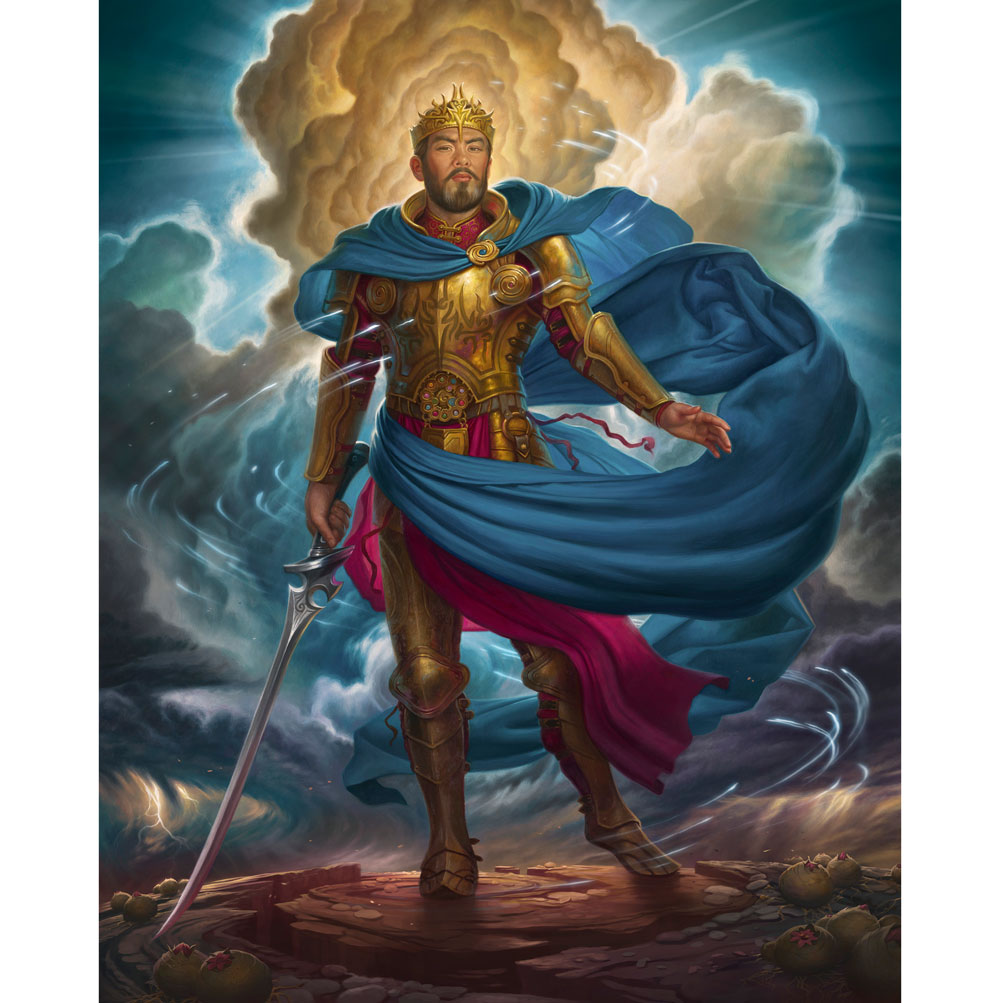When Commisioning Art Should You Tip Before or After?
How to take commissions: The dos and don'ts
Every bit a freelance artist or designer, it's crucial to know how to have on commissions in the best way y'all can. Working on a commission for a client can be a tricky matter. All the same talented you are artistically, a client is besides a person, with all the flaws and foibles we humans share. So you need to tread carefully.
This commodity puts together a series of tips from industry pros, so you'll know the dos and don'ts of taking a committee – helping yous to work better with clients and gain repeat and new concern.
A sparkling portfolio is the best manner to attract new clients and so here'south some inspiration for your design portfolio . Need to upgrade your pattern toolkit? These are the best tools for graphic designers and spider web pattern tools around right at present.
01. Know how to calculate your fee

The first dilemma is how much to charge. That'south not always piece of cake, fifty-fifty for a seasoned professional like US-based illustrator Annie Stegg. "Calculating fees is ever very hard," she says. "While I practise get by industry standards, I tend to adjust my fee based on how long I call back it volition accept me to complete an epitome. If there are loftier-cost materials, that's besides factored in. It's nearly striking a balance."
Others take a similar approach. French illustrator and art editor Olivier Bonhomme says, "I usually summate my fee on a twenty-four hours rate, only it depends how big the project and client are. I might charge less for a modest music ring project, for example: it really depends on the context."
02. Take complications into account
Rates aren't ever straightforward, either, for Kelsey Beckett, a freelance illustrator and fine artist based in Michigan, US. "My fees are unremarkably calculated based on size, content and medium," she explains. "But sometimes if a client has a vision that is complicated, such every bit multiple characters, a detailed groundwork or narrative, the price will increase."
03. Communicate well

Estimating the time that you're going to spend on a projection is challenging, considering yous also have to take potential revision requests into account. To avert too many of those, good communication is vital, believes Beckett.
"It's important to be clear from the start," she says. "Permit them know almost additional fees for revisions, the time it will have to complete a project, and the blazon of information y'all need from them." She also recommends writing a contract that outlines exactly how you handle and accuse for edits. "You want to make sure that you and your client are on the aforementioned page and both feel secure right out of the gate, and a contract is a very easy style to achieve this," Beckett explains.
04. Put in the effort

Every bit with whatsoever relationship, the artist-customer is one that should ideally improve and mature over time. Conversely, when it comes to new clients, it's worth putting a chip of extra endeavor, says Howard Lyon, a fine artist and illustrator based in Utah, US.
"When I work with a new customer, I ever cross my fingers with the first task, and hope we share the aforementioned vision," he says. "I'll do extra sketches and make them a little tighter, and so there are plenty of clear options for the analogy. That eliminates wasting fourth dimension on miscommunication."
05. Know what to do when things become south
Sometimes, however, human relationship breakdown is inevitable, perhaps because the customer is acting in bad faith, or because they don't know what they want. "There are scammers out there, and there are also people commissioning artists who don't understand the industry," says Stegg.
"Having a contract is also a swell style of avoiding scams earlier they tin practice any impairment to yous," says Beckett. "I piece of advice that I feel isn't discussed enough is to keep your [courier] tracking numbers, which will permit you know if a physical painting or drawing has made it to the client."
06. Spot cherry-red flags
Merely whether we're talking about dishonest people or incompetent ones, how practise you spot potential bad clients before taking them on? Stegg lists some red flags: "Beingness unwilling to pay a portion of the overall fee in advance. Being unwilling to pay standard rates. Having extremely specific art direction, where you can tell there volition be a million revisions each stride of the fashion. Also, if they tell you lot they had to burn their previous creative person, it probable means the artist fired them."
Beckett adds her own suggestions to the list. "If someone is brusque with you, leaves you feeling broken-hearted, or isn't cooperative. If you offer someone your contract and they turn down to sign. If they refuse to utilise the payment system yous're comfortable with, opting for a cheque or money order." She adds that it's helpful to take a network of artists who can alert y'all to fraudulent clients they've had in the past.
07. Remember your rights

Remember, too, to examine the minor print when information technology comes to rights. "Generally with large companies, you lot want to maintain as many rights every bit you lot can for reprint and reuse," advises Magic: The Gathering artist Rebecca Guay. "Of grade, if it's your starting time job with them, or you're new, you generally accept to take what they are offer, then negotiate a improve deal subsequently."
Meanwhile, when information technology comes to payment, Guay says, "Get 20 per cent afterward sketches are done, xx per cent subsequently a low-res prototype is approved, then the residuum prior to commitment of the loftier-res images, or the paintings or drawings if they're traditional, plus a set rate per hour on all edits."
And the best fashion to negotiate all of this effectively? "E'er have your walking shoes on," Guay advises. "If you have the power to walk away from anything, y'all'll negotiate better. If you're completely new, you lot don't ain walking shoes yet but yous will, and when you do, use them."
08. Maintain your passion

However while keeping a cool business organisation head is vital when you accept a commission, don't lose sight of what led you to become an artist in the outset identify. "I'd say the most important affair is to work with sincerity, even on a small project," says Bonhomme.
"Maintaining passion and being devoted to the work is something that clients can feel, so it really helps things become smoothly. Keep a clear mind, don't ask for inexpensive breaking-marketplace fees, simply be realistic. And terminal simply non to the lowest degree, take fun doing it."
This commodity was originally published in outcome 180 of ImagineFX , the world'south best-selling magazine for digital artists. Buy issue 180 or subscribe to ImagineFX .
Read more:
- ten top illustration trends for 2020
- The best complimentary business menu templates
- The best drawing tablet: Our choice of the best graphics tablets in 2020
Related articles
Source: https://www.creativebloq.com/advice/how-to-take-commissions
0 Response to "When Commisioning Art Should You Tip Before or After?"
Postar um comentário